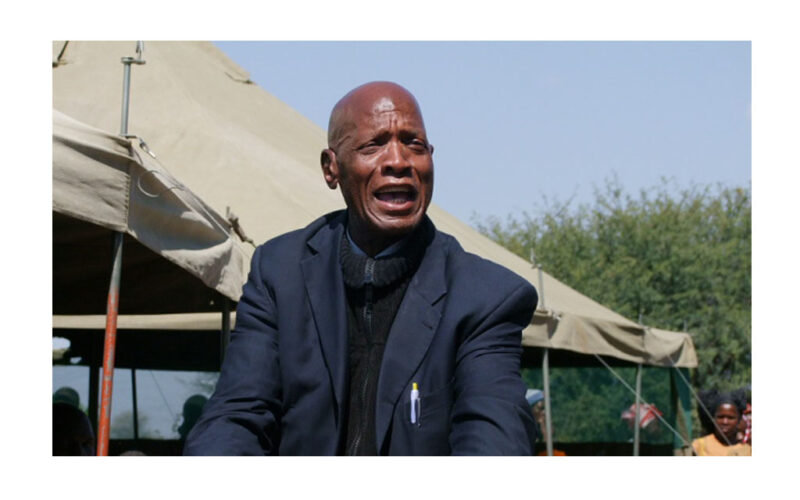Stefanus Nashama
Chief of the Hambukushu tribe, Erwin Munika Mbambo, has deeply expressed his concern over the issue of Namibia’s Obeisance to international pressure on how the country manages its natural resources.
As a traditional leader, Mbambo said he has observed that international conservation groups have tendencies to dictate and manipulate how African countries should manage their natural resources, causing the country to suffer the consequences afterward.
According to him, international conservation individuals have no understanding of the social dimensions and realities of local communities in countries, like Namibia, citing that their interest only relies on their benefits.
In this regard, Mbambo said external influence over resources management continues to affect and impoverished people, particularly at the grassroots level in the country. “Restrictions imposed by the Convention on International Trade in Endangered Species of Wild Fauna and Flora Have contributed to the reduction in the number of hunting quotas allocated to conservancies for some species despite their ballooning populations,” he stressed.
Mbambo made these remarks yesterday during a meeting with the Parliamentary Standing Committee on Natural Resources, which is conducting public hearings on human and wildlife conflict in Kavango East and West Regions.
He claimed that the Government has drawn restrictions on traditional authorities in the management of natural resources of the country.
Mbambo explained that in the past, the Government used to collaborate and engage with traditional authorities concerning the management of natural resources.
“These days the traditional authorities have to ask for permission to use natural resources,” he said.
He questioned why the Government is managing its natural resources based on interests of foreign governments at the expense of its people.
“Namibia, as a country with its natural resources should be in a position to know what to do with its resources, and not kneeling to the influence of external conservation pressures,” he lamented.
The Chief called for the withdrawal of colonial law of the Nature Conservation Ordinance of 1975, saying it’s outdated and has failed contemporary issues concerning the management of natural resources.
Further indicating that his community has been consulted many times over the issue of human-wildlife conflict but the law that is supposed to address the issue has never changed.
“With colonial-era law guiding us, we are still living in the past,” he remarked.
According to Mbambo, the 2018-2027Revised National Policy on Human Wildlife Conflict Management has no meaningful ways to address issues related to human-wildlife conflict in the country.
Some community members who also attended the meeting, raised the issue of increasing human-wildlife conflict cases in the area, saying people who live close to Bwabwata and Mahango National Parks are at risk of conflict with wild animals.
They claimed the Ministry of Environment, Forestry and Tourism takes time to attend to them when such cases are reported. This includes procrastination in the payments of compensation claims.
The community suggested that the Government Should introduce a deliberate policy aimed at regularly harvesting problem animals to reduce their populations and minimize human-wildlife attacks.
According to the National Assembly report, the protracted Wildlife and Protected Areas Management Bill which has been in discussions for more than 20 years, is envisaged to replace the Conservation Ordinance of 1975, to address a wide range of shortcomings in the management of natural resources.
Efforts to get comments from the Ministry of Environment, Forestry and Tourism were futile




